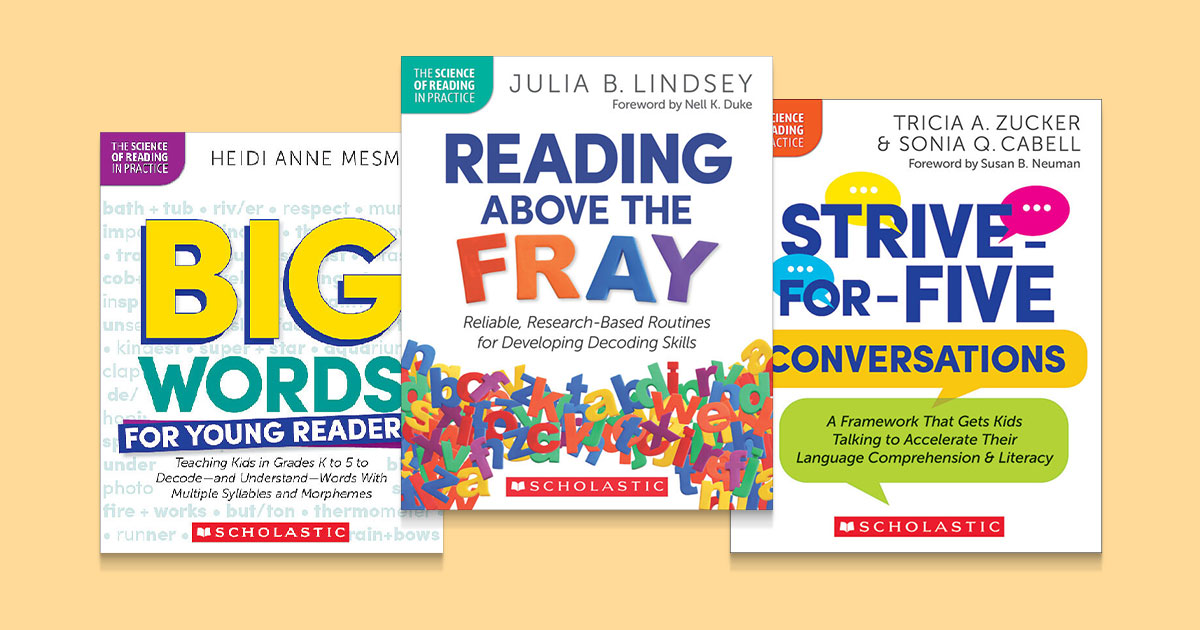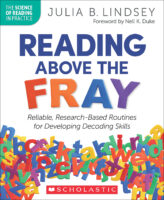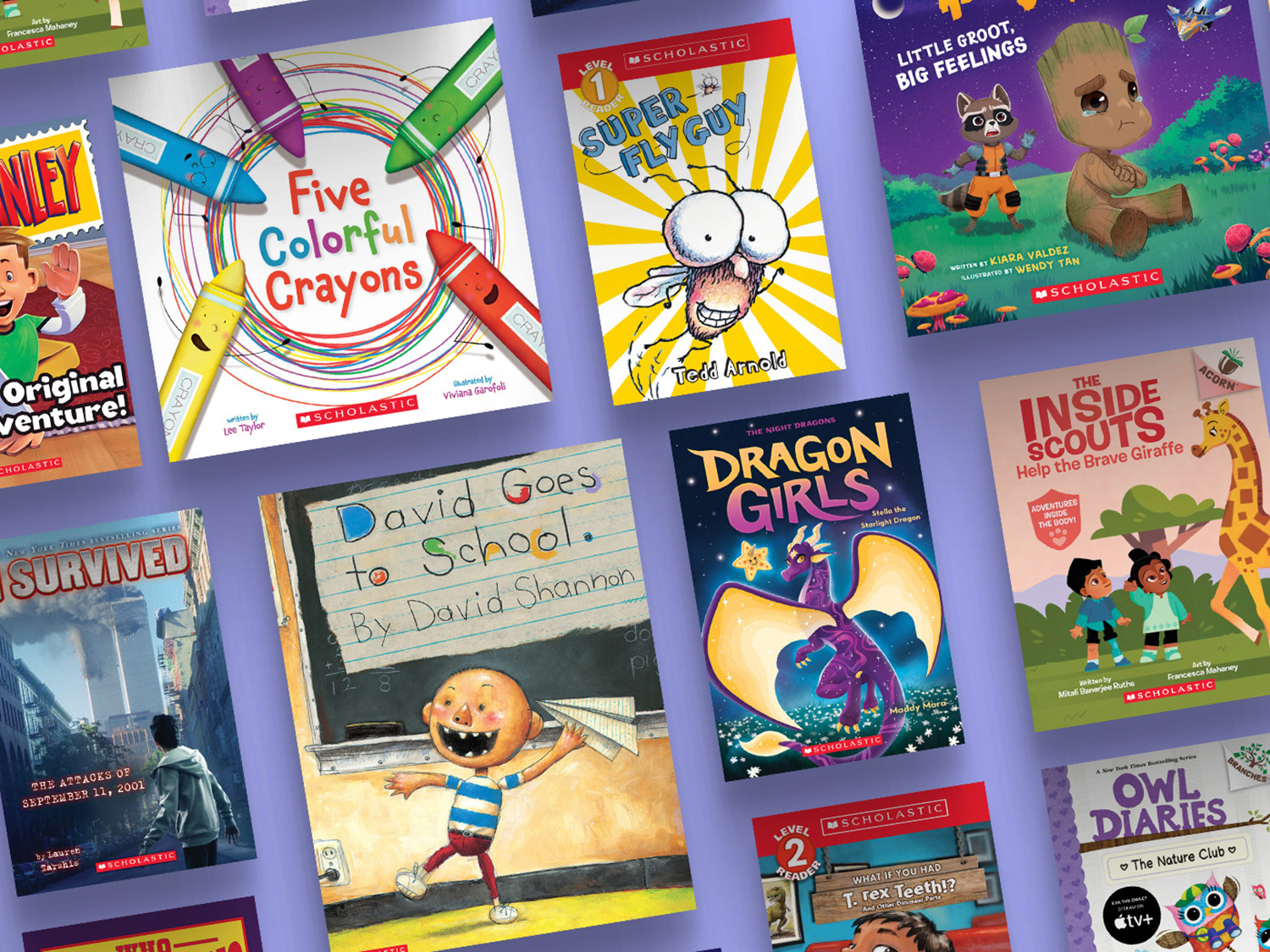6 Essential Books for Putting the Science of Reading Into Practice
Turn to these professional books from literacy experts to help get started with the science of reading.
Our Science of Reading in Practice professional book series includes deep insights and practical start-today tips from literacy experts with decades of experience applying the Science of Reading (SOR) to help students succeed in their literacy journeys.
1. Reading Above the Fray: Reliable, Research-Based Routines for Developing Decoding Skills | By Julia B. Lindsey, Ph.D.
Lindsey explains how the ability to decode propels a child’s reading journey — and shows how to apply the research to strengthen reading instruction in grades K-2. Lindsey’s evidence-based routines will help young readers decode words efficiently, so they can spend more energy comprehending — and enjoying — what they read.
2. 7 Mighty Moves: Research-Backed, Classroom-Tested Strategies to Ensure K-to-3 Reading Success | By Lindsay Kemeny
Primary reading expert and classroom teacher Lindsay Kemeny shares seven evidence-backed ways that K-3 teachers can modify their instruction to support students’ reading success. Each chapter focuses on a critical area of foundational reading — from the most efficient ways to teach phonemic awareness and phonics to the most effective ways to boost comprehension.
3. Strive-for-Five Conversations: A Framework That Gets Kids Talking to Accelerate Their Language Comprehension & Literacy | By Dr. Tricia Zucker and Dr. Sonia Q. Cabell
Zucker and Cabell’s science-based “Strive-for-Five” conversation framework accelerates young children’s language and literacy development. These conversations start with what children say and continue as the teacher listens and responds over five turns — with the goal of stretching their knowledge, vocabulary, reasoning, and other skills that underpin reading success.
4. Big Words for Young Readers: Teaching Kids in Grades K to 5 to Decode—and Understand—Words With Multiple Syllables and Morphemes | By Heidi Anne Mesmer
From kindergarten, students need to be able to decode short words and “big words” to read proficiently. Mesmer equips K-5 educators with research-backed strategies for teaching words with multiple syllables (sound units) and morphemes (meaning units). She offers a systematic approach, including a scope and sequence that aligns with any science-of-reading-based program, to strengthen reading skills across the grades.
5. Know Better, Do Better: Comprehension: Fueling the Reading Brain With Knowledge, Vocabulary, and Rich Language | By David and Meredith Liben
As a follow-up to their bestselling first book on teaching foundational skills, David and Meredith Liben explore how the mind comprehends texts. They translate theory and research to help teachers understand what students truly need to unlock meaning behind complex texts. Emphasizing the importance of developing vocabulary, knowledge, and an understanding of language structures, they provide classroom-tested ideas that move beyond typical strategy instruction to help kids read deeply for pleasure and with purpose.
6. The Literacy 50: A Q&A Handbook for Teachers | By Melissa Loftus and Lori Sappington
Popular podcasters Loftus and Sappington present the questions that teachers ask them most about how children learn to read-and provide solid, evidence-based answers inspired by their interviews with experts. Written in colleague-to-colleague style, the book helps teachers find what they need quickly and easily to address phonemic awareness, phonics, fluency, vocabulary, and comprehension.









